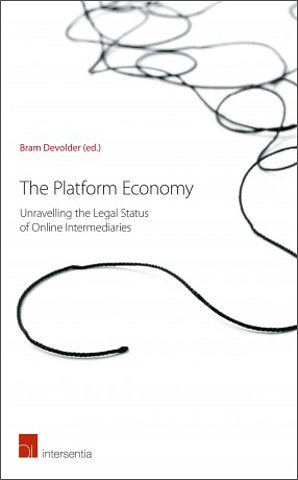The Platform Economy
Unravelling the Legal Status of Online Intermediaries
Gebonden Engels 2019 1e druk 9781780686349Samenvatting
On 20 December 2017 and 10 April 2018 respectively, the Court of Justice of the European Union passed two landmark cases on the legal status of internet platform Uber. The Court established that Uber does not merely provide an app, but rather offers a full transport service. Without Uber there would be no market for non-professional drivers using their own vehicles. Moreover, the platform exercises a decisive influence over the conditions under which drivers provide their service.
These rulings address the very core of several highly debated questions on the legal status of online intermediaries such as Uber, Airbnb and TaskRabbit. Is regulatory intervention needed to reap the potential benefits of the platform economy or to mitigate the potentially negative consequences of regulatory disruption? Can platforms be held liable for the proper execution of services provided by others? Does existing national regulation impose disproportionate market restrictions on innovators? Should we rethink labour protection and social security to address the potential loss of social protection of non-standard workers? How can revenue law be improved to tackle elaborate (international) schemes to avoid direct and indirect taxation?
Emerging platforms claim to create new market opportunities and to provide innovative solutions to improve social welfare. Conversely, the platform economy blurs established lines between traditional legal categories, such as business and consumer, personal and professional, and worker and contractor. Traditional regulation, which often focuses on balancing the interests of two contracting parties, is now confronted with the three-sided contractual relationship between a platform, a supplier and a user.
In this book, a panel of international legal experts unravel the legal status of online intermediaries – a thorny knot that legislators, judges and lawyers across the globe are facing.
Specificaties
Lezersrecensies
Inhoudsopgave
Chapter 1. Digital Platforms: To Regulate or Not to Regulate? (p. 1)
Chapter 2. Contractual Liability of the Platform (p. 31)
Chapter 3. Law Evasion in the Platform Economy: The Uber Case (p. 89)
Chapter 4. Regulating the Sharing Economy in China: A National Report (p. 125)
Part II. Platforms and EU Law: Where Are We Now and What Lies Ahead?
Chapter 1. Competition Law in the Peer-to-Peer Economy (p. 141)
Chapter 2. Draft Model Rules on Online Intermediary Platforms (p. 173)
Part III. Platforms and Social Law: Rethinking Labour Protection and Social Security to Address Non-Standard Work?
Chapter 1. The Court of Justice of the EU, Uber and Labout Protection: A Labour Lawyers' Approach (p. 187)
Chapter 2. Social Protection of Non-Standard Workers: The Case of Platform Work (p. 227)
Chapter 3. Social Security and the Platform Economy in Belgium: Dilemma and Paradox (p. 259)
Chapter 4. And What About the Gig Worker? (p. 287)
Part IV. Platforms and Revenue Law: Pushing the Boundaries of Direct and Indirect Taxation?
Chapter 1. International Corporate Taxation of Digital Platforms (p. 325)
Chapter 2. Collecting Value Added Tax in the Platform Economy: Overview of the Fundamental Issues and Recent EU 2018 Developments (p. 363)
Chapter 3. Uber's Approach to Value Added Tax: Testing the Limits of the European VAT Legislation (p. 379)
Anderen die dit boek kochten, kochten ook
Rubrieken
- advisering
- algemeen management
- coaching en trainen
- communicatie en media
- economie
- financieel management
- inkoop en logistiek
- internet en social media
- it-management / ict
- juridisch
- leiderschap
- marketing
- mens en maatschappij
- non-profit
- ondernemen
- organisatiekunde
- personal finance
- personeelsmanagement
- persoonlijke effectiviteit
- projectmanagement
- psychologie
- reclame en verkoop
- strategisch management
- verandermanagement
- werk en loopbaan






